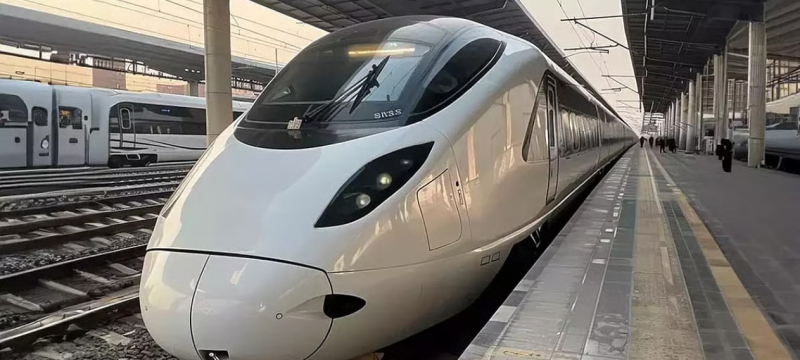ISLAMABAD: Pakistan Railways has announced an ambitious plan, with Pakistan to launch Lahore–Karachi bullet train by 2030. The new high-speed service will reduce travel time between the two provincial capitals from 20 hours to only five.
According to state-run Radio Pakistan, the 1,215-kilometer line will be part of the Main Line 1 (ML-1) project. The $6.7 billion upgrade of the Karachi–Peshawar corridor is a central element of the China-Pakistan Economic Corridor (CPEC).
Railways Minister Hanif Abbasi confirmed that the train will run at speeds of up to 250 kilometers per hour. Major stops will include Hyderabad, Multan, and Sahiwal. The project will be developed in partnership with China, with China Railway Construction Corporation taking a leading role.
The ML-1 upgrade will involve construction of dual tracks, rebuilding bridges, and installing modern signaling systems. Officials said the plan will not only cut passenger travel time but also boost freight capacity. Rail’s share in cargo transport is expected to increase from 4 percent to 20 percent by 2030.
By shifting more cargo and passengers from road to rail, Pakistan hopes to save billions in fuel imports. The project will also generate thousands of jobs during construction and operation.
Despite its significance, Pakistan’s railway sector faces challenges. Decades of underinvestment, outdated infrastructure, and frequent delays have reduced its efficiency. Currently, Pakistan Railways manages more than 7,700 kilometers of track, much of which requires urgent modernization.
The announcement that Pakistan to launch Lahore–Karachi bullet train has been welcomed as a step toward modernization. Experts believe the project could transform the country’s transport network and support long-term economic growth.
With China’s support and strong government backing, the Pakistan to launch Lahore–Karachi bullet train plan is seen as one of the most important rail projects in the nation’s history.
Read Also: Lahore’s Yellow Line Electric Train Project Finalized to Boost Eco-Friendly Urban Transit







